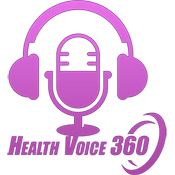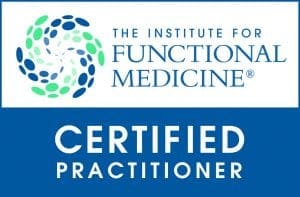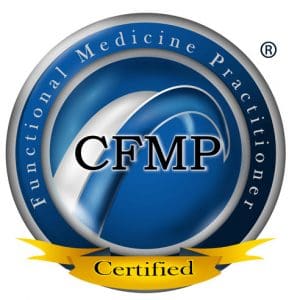Discover the hidden challenges of the nervous system associated with auto injuries and find strategies to cope and improve your condition.
Table of Contents
Introduction: Understanding Whiplash and Its Broader Impact
Picture this: you’re cruising down the highway, maybe humming along to your favorite tune, when—BAM!—a car rear-ends you. Your head snaps forward and back like a bobblehead, and suddenly, you’re dealing with whiplash. It’s not just a cartoonish neck jolt; whiplash is a serious injury that can affect more than just your neck. It’s a common result of motor vehicle accidents (MVAs), especially rear-end collisions, and can lead to chronic pain, nervous system issues, and even low back pain. This blog post dives deep into the clinical reasons behind these effects, with a nod to the expertise of Dr. Alexander Jimenez, a top chiropractor in El Paso, Texas, who’s been helping accident victims for over 30 years.
Whiplash doesn’t just cause a sore neck; it can disrupt your nervous system, causing you to feel pain more intensely, and sometimes it even extends to your lower back. We’ll explore how this occurs, what symptoms to look out for, and how nonsurgical treatments can help. Additionally, we’ll highlight why personal injury cases in El Paso often turn to Dr. Jimenez, who excels at connecting medical care with legal needs. So, buckle up (safely, of course) for a comprehensive look at whiplash, with a sprinkle of humor to keep things light—think Uncle Fester from The Addams Family chuckling through the pain.
The Mechanism of Whiplash Injury
Whiplash happens when your head and neck are suddenly forced forward and backward, like a whip cracking. This rapid motion, often from an MVA, stretches or tears the neck’s muscles, ligaments, and tendons. It can also damage intervertebral joints, discs, and nerves. The force can be so intense that injuries may not be apparent immediately, but can develop into chronic problems later (Low-Speed Collisions).
The biomechanics are complex: your head, neck, and torso don’t move in sync during a crash. The cervical spine (neck) gets pushed beyond its normal range, causing strain. Research shows that even low-speed crashes, such as a 5-mph fender-bender, can trigger whiplash because the neck is particularly vulnerable (Siegmund et al., 2003). It’s like your neck is the weak link in a chain, and MVAs yank it hard.
| Structure Affected | Potential Injury |
|---|---|
| Muscles | Strains, tears |
| Ligaments | Sprains, overstretching |
| Discs | Herniation, bulging |
| Nerves | Irritation, compression |
Whiplash and the Nervous System: A Painful Connection
Whiplash doesn’t just hurt your neck; it can throw your nervous system into chaos. Imagine your nervous system as a fussy electrical grid—whiplash can short-circuit it, leading to symptoms that make you feel like you’re in a sci-fi thriller. Here’s how:
- Central Sensitization: Whiplash can cause your brain and spinal cord to become overly sensitive to pain signals, a condition known as central sensitization. Every day sensations, like a light touch, might feel like a jab. Studies show this happens because of disturbed nociceptive processing—your body’s pain signaling goes haywire (Sterling, 2011).
- Spinal Cord Hyper-Excitability: The spinal cord can become overly reactive, amplifying pain signals. This can lead to sensory hypersensitivity, where you’re extra sensitive to touch, heat, or cold (Sterling, 2011).
- Autonomic Nervous System (ANS) Dysfunction: The ANS regulates functions such as heart rate and blood pressure. Whiplash can disrupt it, causing symptoms such as dizziness, fatigue, or a racing heart. Research notes impaired vasoconstrictor responses in WAD patients, which disrupts blood flow regulation (Sterling, 2011).
- Brain Changes: Whiplash can alter blood flow in the brain, affecting areas that process pain and sensory information. This may explain chronic symptoms such as brain fog or memory issues (Long-Term Effects).
These nervous system changes can make recovery tricky. Up to 50% of whiplash patients never fully recover, and 30% face moderate to severe disability (Sterling, 2011). It’s like your body’s wiring gets tangled, and untangling it takes time and care.
Whiplash and Low Back Pain: The Unexpected Link
You might think whiplash only affects your neck, but surprise—it can also give you a sore lower back. The force of an MVA doesn’t politely stop at your neck; it can ripple down your spine, straining the lumbar region. Here’s why low back pain sneaks into the picture:
- Biomechanical Forces: The sudden jolt of a crash can stretch or injure muscles, tendons, and ligaments in the lower back. Small joints in the lumbar spine can also become damaged, leading to pain and stiffness (Whiplash Lower Back).
- Compensatory Mechanisms: After a neck injury, your body may adjust your posture or movement to protect the affected area. This can put extra stress on your lower back, such as leaning too hard on one leg because the other is sore (Kasch et al., 2008).
- Shared Nervous System Pathways: The nervous system changes, such as central sensitization, that occur following whiplash can cause pain to spread beyond the neck. Low back pain might be part of this widespread hypersensitivity (Sterling, 2011).
Research shows many whiplash patients report low back pain, but the exact link is debated. Some argue it’s due to direct injury, while others point to psychological factors or litigation stress amplifying symptoms (Low Back Pain Study). Either way, if your lower back’s grumbling after a crash, whiplash might be the culprit.
| Symptom | Possible Cause |
|---|---|
| Low back pain | Lumbar strain, nerve irritation |
| Stiffness | Muscle spasms, joint inflammation |
| Radiating leg pain | Disc injury, sciatic nerve compression |
Symptoms Associated with Whiplash: More Than Just a Sore Neck
Whiplash symptoms can feel like a grab bag of misery, ranging from mild to debilitating. They depend on the injury’s severity and your overall health. Common symptoms include:
- Musculoskeletal Symptoms:
- Neck pain and stiffness
- Headaches, often starting at the base of the skull
- Shoulder or upper back pain
- Nervous System Symptoms:
- Sensory hypersensitivity (e.g., pain from light touch or temperature)
- Numbness or tingling in the arms or legs
- Dizziness or vertigo
- Brain fog, memory problems, or difficulty concentrating (Long-Term Effects)
- Low Back Symptoms:
- Localized lower back pain
- Stiffness or reduced mobility
- Radiating pain down the legs (sciatica-like) (Whiplash Lower Back)
Chronic whiplash can be particularly tough, with 25% of patients facing mild disability and others dealing with moderate to severe pain long-term (Whiplash Associated Disorders). It’s like your body’s stuck in a bad rerun, replaying pain and discomfort.
The Science of Motion- Video
Nonsurgical Treatments for Whiplash: Healing Without the Scalpel
Good news: most whiplash cases don’t require surgery. Nonsurgical treatments focus on reducing pain, restoring function, and preventing chronic issues. Here’s what’s on the menu:
- Physical Therapy: Exercises to boost range of motion, strengthen neck and back muscles, and ease pain. Try gentle stretches and core workouts to get you moving again.
- Chiropractic Care: Spinal adjustments to fix misalignments and relieve nerve pressure. It’s like giving your spine a tune-up (Dr. Jimenez’s Profile).
- Massage Therapy: Kneads out muscle tension and improves blood flow. It’s not just relaxing—it helps heal.
- Acupuncture: Tiny needles are inserted into specific pain points to reduce discomfort and promote recovery. It’s less scary than it sounds!
- Medications: Over-the-counter NSAIDs (like ibuprofen) for pain and inflammation, or muscle relaxants for spasms.
Dr. Alexander Jimenez emphasizes a holistic approach, combining these treatments to address both physical and neurological symptoms. His clinic, Injury Medical Clinic PA, is a one-stop shop for whiplash recovery, offering personalized plans that help you return to your old self—or at least get close to it.
| Treatment | Benefit |
|---|---|
| Physical Therapy | Improves mobility, strengthens muscles |
| Chiropractic Care | Realigns spine, reduces nerve pain |
| Massage Therapy | Relaxes muscles, boosts circulation |
| Acupuncture | Reduces pain, promotes healing |
The Role of Chiropractic Care in Whiplash Treatment
Chiropractic care is a cornerstone of whiplash treatment, tackling both the musculoskeletal and neurological sides of the injury. Chiropractors, such as Dr. Jimenez, use spinal adjustments to correct misalignments that may be pinching nerves or causing pain. These adjustments are like hitting the reset button on your spine, helping it function better.
Beyond adjustments, chiropractors might use:
- Soft Tissue Therapy: To loosen tight muscles and reduce scar tissue.
- Rehabilitation Exercises: To rebuild strength and flexibility.
- Lifestyle Counseling: Tips on posture, ergonomics, or stress management to prevent re-injury.
Dr. Jimenez’s patient-centered approach means he listens to your symptoms and crafts a plan just for you. His 30+ years of experience make him a go-to for whiplash patients in El Paso (Dr. Jimenez’s Profile).
Dr. Alexander Jimenez: A Leader in Whiplash Treatment
Dr. Alexander Jimenez isn’t just any chiropractor—he’s a rock star in El Paso’s medical scene. With over three decades of experience, he specializes in musculoskeletal and neurological conditions, including whiplash. His expertise in functional medicine enables him to delve into the root causes of injuries, rather than merely treating symptoms.
What sets Dr. Jimenez apart is his ability to bridge the worlds of medicine and law. He uses advanced imaging (like MRIs) and diagnostic evaluations to pinpoint injuries, which is crucial for personal injury cases. His dual-scope procedures—combining clinical care with legal documentation—make him a lifeline for MVA victims. He’s like the Sherlock Holmes of chiropractic, piecing together evidence to support your recovery and your case.
At Injury Medical Clinic PA, Dr. Jimenez offers a comprehensive range of services, including spinal adjustments and rehabilitation programs. His commitment to patient education, through blogs, webinars, and podcasts, empowers you to take charge of your health. No wonder he’s won the Top Rated El Paso Chiropractor Award every year from 2015 to 2024 (Dr. Jimenez’s Profile).
Personal Injury Cases and Whiplash: Why Documentation Matters
Whiplash is a frequent player in personal injury cases, especially after MVAs. The pain and disruption it causes can lead to significant physical and emotional distress, not to mention medical bills and lost wages. Getting prompt medical care isn’t just about feeling better—it’s about documenting your injuries for legal claims.
Dr. Jimenez excels here. His thorough evaluations, backed by advanced diagnostics, provide clear evidence of your injuries. This documentation is gold in personal injury litigation, ensuring you get the care and compensation you deserve. He’s like a translator, turning medical jargon into legal proof that protects your rights.
In El Paso, where MVAs are all too common, Dr. Jimenez is a trusted ally for accident victims. His ability to connect clinical findings with legal needs makes him a standout practitioner (Dr. Jimenez’s Profile).
Conclusion and Disclaimer
Whiplash is no laughing matter, despite our Uncle Fester-inspired chuckles. It’s a complex injury that can disrupt your nervous system, cause low back pain, and linger like an unwelcome guest. Understanding how it works—from central sensitization to lumbar strain—is key to effective treatment. Nonsurgical options, such as chiropractic care, physical therapy, and acupuncture, offer hope, and experts like Dr. Alexander Jimenez lead the charge in El Paso.
This blog post is packed with info, but it’s not a substitute for professional medical advice. If you’re dealing with whiplash or suspect you may have it, consult a qualified healthcare provider for personalized care. Your health is worth it, and the right treatment can get you back to living your best life.
Key Citations
- Course and Prognostic Factors for Neck Pain in Whiplash-Associated Disorders
- Whiplash-Associated Disorder: Musculoskeletal Pain and Clinical Findings
- Can Patients with Low Energy Whiplash Develop Low Back Pain?
- Whiplash Associated Disorders Overview
- Long-Term Effects of Whiplash: Causes and Treatment
- Whiplash Injury Overview from Johns Hopkins Medicine
- Whiplash Lower Back Conditions and Treatment
- Dr. Alexander Jimenez’s Professional LinkedIn Profile
Disclaimer
General Disclaimer
Professional Scope of Practice *
The information herein on "Auto Injuries: Understanding the Impact on the Nervous System" is not intended to replace a one-on-one relationship with a qualified health care professional or licensed physician and is not medical advice. We encourage you to make healthcare decisions based on your research and partnership with a qualified healthcare professional.
Blog Information & Scope Discussions
Welcome to El Paso's Premier Wellness and Injury Care Clinic & Wellness Blog, where Dr. Alex Jimenez, DC, FNP-C, a Multi-State board-certified Family Practice Nurse Practitioner (FNP-BC) and Chiropractor (DC), presents insights on how our multidisciplinary team is dedicated to holistic healing and personalized care. Our practice aligns with evidence-based treatment protocols inspired by integrative medicine principles, similar to those found on this site and our family practice-based chiromed.com site, focusing on restoring health naturally for patients of all ages.
Our areas of multidisciplinary practice include Wellness & Nutrition, Chronic Pain, Personal Injury, Auto Accident Care, Work Injuries, Back Injury, Low Back Pain, Neck Pain, Migraine Headaches, Sports Injuries, Severe Sciatica, Scoliosis, Complex Herniated Discs, Fibromyalgia, Chronic Pain, Complex Injuries, Stress Management, Functional Medicine Treatments, and in-scope care protocols.
Our information scope is multidisciplinary, focusing on musculoskeletal and physical medicine, wellness, contributing etiological viscerosomatic disturbances within clinical presentations, associated somato-visceral reflex clinical dynamics, subluxation complexes, sensitive health issues, and functional medicine articles, topics, and discussions.
We provide and present clinical collaboration with specialists from various disciplines. Each specialist is governed by their professional scope of practice and their jurisdiction of licensure. We use functional health & wellness protocols to treat and support care for musculoskeletal injuries or disorders.
Our videos, posts, topics, and insights address clinical matters and issues that are directly or indirectly related to our clinical scope of practice.
Our office has made a reasonable effort to provide supportive citations and has identified relevant research studies that support our posts. We provide copies of supporting research studies upon request to regulatory boards and the public.
We understand that we cover matters that require an additional explanation of how they may assist in a particular care plan or treatment protocol; therefore, to discuss the subject matter above further, please feel free to ask Dr. Alex Jimenez, DC, APRN, FNP-BC, or contact us at 915-850-0900.
We are here to help you and your family.
Blessings
Dr. Alex Jimenez DC, MSACP, APRN, FNP-BC*, CCST, IFMCP, CFMP, ATN
email: coach@elpasofunctionalmedicine.com
Multidisciplinary Licensing & Board Certifications:
Licensed as a Doctor of Chiropractic (DC) in Texas & New Mexico*
Texas DC License #: TX5807, Verified: TX5807
New Mexico DC License #: NM-DC2182, Verified: NM-DC2182
Multi-State Advanced Practice Registered Nurse (APRN*) in Texas & Multistate
Multistate Compact RN License by Endorsement (42 States)
Texas APRN License #: 1191402, Verified: 1191402 *
Florida APRN License #: 11043890, Verified: APRN11043890 *
* Prescriptive Authority Authorized
ANCC FNP-BC: Board Certified Nurse Practitioner*
Compact Status: Multi-State License: Authorized to Practice in 40 States*
Graduate with Honors: ICHS: MSN-FNP (Family Nurse Practitioner Program)
Degree Granted. Master's in Family Practice MSN Diploma (Cum Laude)
Dr. Alex Jimenez, DC, APRN, FNP-BC*, CFMP, IFMCP, ATN, CCST
My Digital Business Card
RN: Registered Nurse
APRNP: Advanced Practice Registered Nurse
FNP: Family Practice Specialization
DC: Doctor of Chiropractic
CFMP: Certified Functional Medicine Provider
MSN-FNP: Master of Science in Family Practice Medicine
MSACP: Master of Science in Advanced Clinical Practice
IFMCP: Institute of Functional Medicine
CCST: Certified Chiropractic Spinal Trauma
ATN: Advanced Translational Neutrogenomics




















